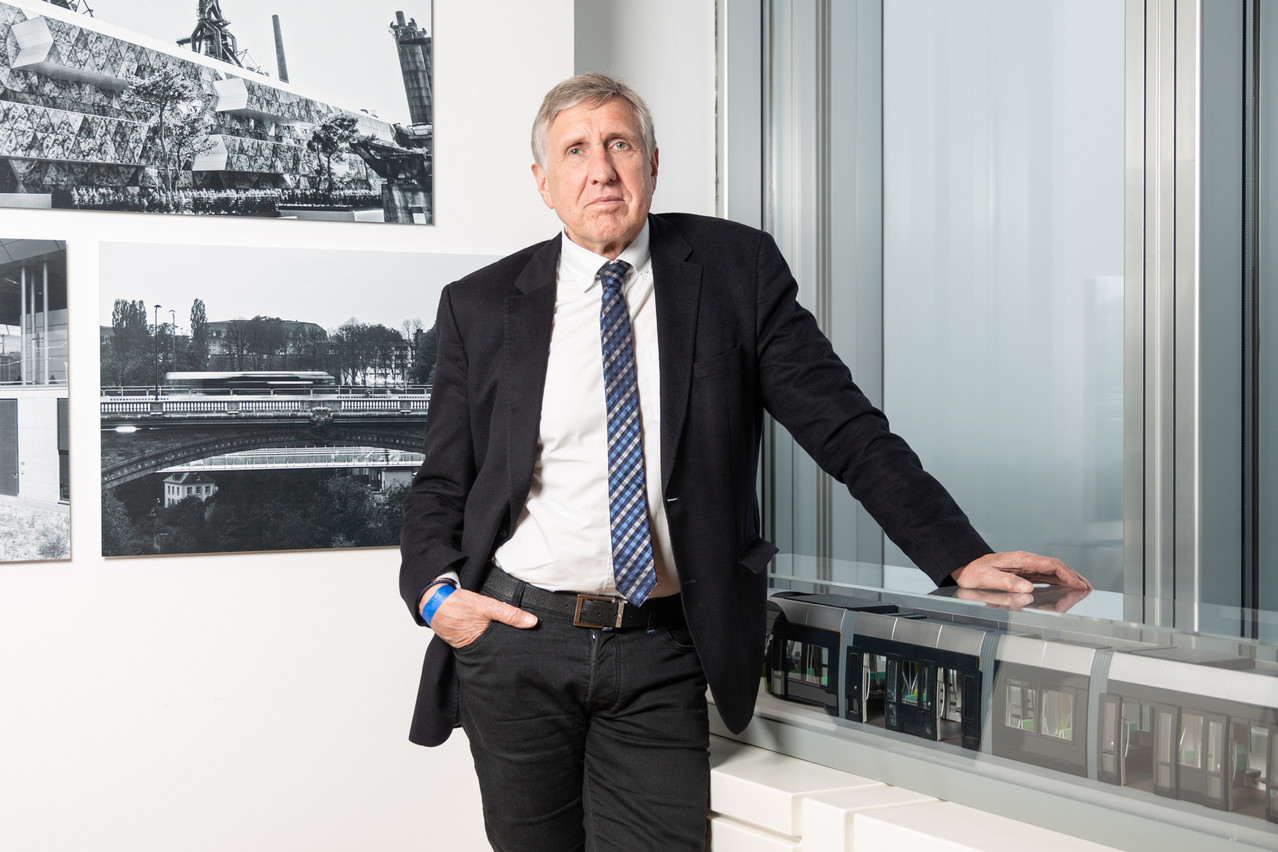“My philosophy is to think of multimodality,” says François Bausch. Assessing and improving the value of each link of the mobility chain is key to keeping up with EU directives on pollution while answering the demands of a growing population.
Cars are part of a mobility network
While his mobility strategy--to be presented in spring 2022--pushes for the development of public transport, Bausch doesn’t want to banish cars.
“Cars have their value in this mobility chain, but they have to be used rationally,” Bausch argues. Studies by the mobility ministry found that 40% of car trips in Luxembourg are less than 5km long. Bausch calls current car usage “extreme” and says cars should be used flexibly, alongside public transports, walking or bicycles.
Multimodal corridors, park and rides around larger public transport platforms and local bypasses are a solution, according to Bausch. Rearranging urban spaces and making the daily transition between different modes of mobility more fluid would improve the lives of local and foreign commuters alike, while making urban spaces more liveable for city dwellers. Yet, “the foundation is that everything has to remain accessible by car”.
2030 mobility to be electric
Offering aids of up to €8,000, for instance, the government aims to “reach by 2030 a 50% rate of electric cars in Luxembourg,” Bausch says. Currently, 191,842 petrol or diesel passenger cars are registered in Luxembourg, according to Statec, versus 4,468 hybrids and 3,141 fully electric cars. Regardless, Bausch assures the transition will be smooth, as half of the cars in Luxembourg are leased.
Tax benefits, exemptions and a gradually decreasing CO2 emission threshold, on top of the generous voucher, should also convince people. The threshold for polluting vehicles will gradually approach zero until 2025, meaning that after that time, “it will only be interesting to buy zero emission cars,” according to Bausch.
Bausch also bets on technological breakthroughs, an increasing variety of e-cars by smaller and important brands, and a decrease in prices as the demand for electric vehicles grows. Plus, the minister argues, the maintenance fees are much lower for electric cars than combustion motors, and the price of electricity is less subject to fluctuations than fossil fuels. “In two or three years, there will barely be a difference between the price of an e-car and a combustion motor,” Bausch concludes.
A changing approach to mobility
The market is changing, and EU directives are looming over car manufacturers and dealerships. The government supports them in this transition, but compromises will have to be found. The gradual adaptation of the emission threshold gives dealerships and leasing businesses “a phase of two to three years to adapt to the change and manage their stock,” though Bausch believes they can expect a more radical transformation.
“Car dealerships in the future have to sell cars but also sell mobility,” according to Bausch, who mentions Mobility as a Service (MaaS) and the concept of a mobility package. “Because the need isn’t always the same,” such packages would allow users to switch between different car models based on the activities they have planned. A pack that could later include other means of transportation.
Ultimately, for Bausch, mobility is about “combining everything that’s there rationally and sustainably,” and this includes cars.
This article first appeared in the February 2022 edition of .
